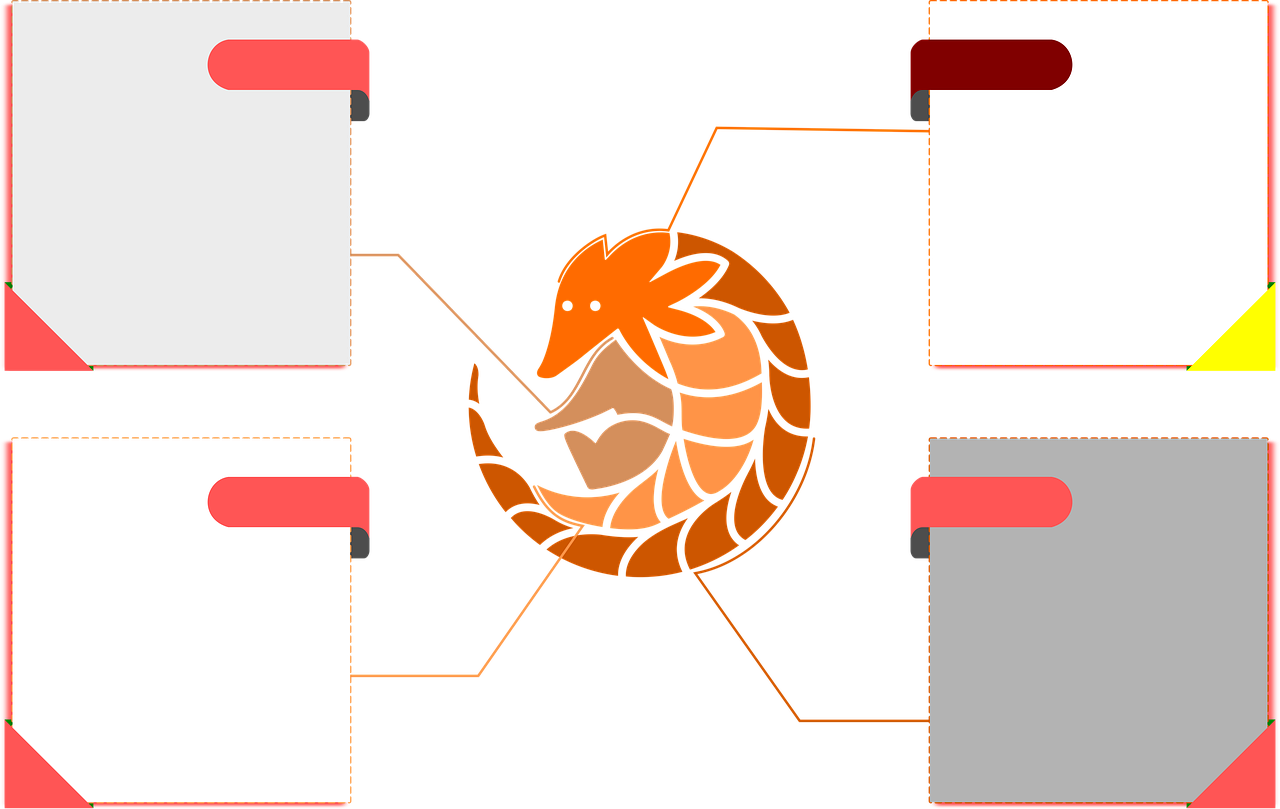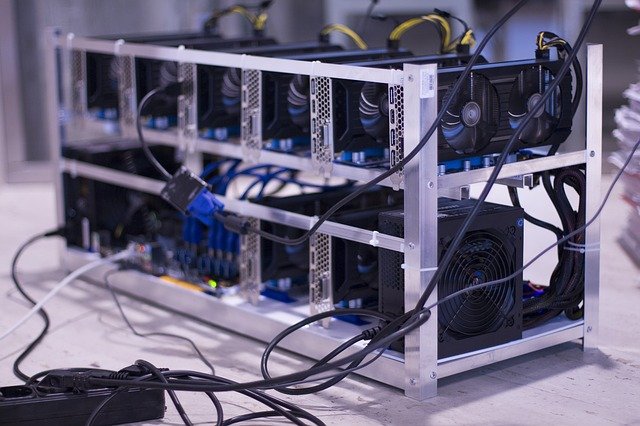Here, we will demonstrate how DeFi tools evolve as adoption increases.
In the earliest days of humanity, people first discovered fire and invented essential tools such as the wheel, weapons, and cooking methods. These very primitive things we all take for granted all began as a shocking surprise to those who first encountered them.
The earliest banks involved storing coins in safety deposit boxes, which eventually became paper ledgers. The paper eventually gave way to digital records as computers emerged, but these ledgers of transactions continued to evolve.
Banks are the troglodytes of finance, barely able to cling to survival as the times change. Climate change is being addressed through the crypto industry, specifically DeFi. As DeFi has moved to the forefront of finance, it is clear that the market demands another evolution; however, banks are reluctant to relinquish their upper hand.
The challenges of DeFi are too enormous currently to usher in the needed wide-sweeping change. However, these DeFi tools have finally evolved, beginning with Covesting yield accounts.
Table of Contents
Why Traditional Banks Are Going Extinct?
When the environment and climate began to change billions of years ago, the species that could no longer adapt to the changes didn’t survive. Any species capable of adapting would ultimately evolve into something even more vital as time passes.
The analogy can be applied in finance. The traditional banks of today will be the fossilized remains of ways of life that eventually become obsolete. Standing in line to speak to a teller has already been replaced by ATMs, and mobile deposits have made depositing paper checks possible.
Blockchain, crypto, Bitcoin, and DeFi could eventually mean no contact, paper, or anything, but a click or two is necessary to access any financial product or service.
It is already beginning with DeFi. At banks today, an archaic process involves a credit application that can be approved or denied based on conditions you have no control or knowledge of.
If the bank manager doesn’t like your last name, you may not be eligible for a loan to start a business. However, DeFi enables permissionless lending and borrowing, provided you have the necessary cryptocurrency to use as collateral.
READ ALSO: Sustainable Finance And Positive Global Transformation
Why The Future Of Finance Is DeFi?
DeFi adoption began to blossom when the total value locked up in smart contracts on Ethereum started trending into the millions. Soon, the number was billions, and now DeFi is a force to be reckoned with.
Early on, most DeFi apps ran on Ethereum, increasing demand for ETH as a currency for using these apps or sending ERC-20 tokens. Trading Ethereum was incredibly profitable as new all-time highs were set.
The trend began to explode when yield farming emerged, resulting in unprecedented APY rates for the earliest participants. As more people piled in, rates finally came down to realistic levels.
However, even a practical level in DeFi is often 10 to 20 times more profitable than the 0.04% rates offered on savings accounts.
READ ALSO: How to Build Cybersecurity Expertise as a Professional
How DeFi Tools Are Evolving As Adoption Takes Place
| Feature | Early Stage DeFi | Evolving DeFi | Key Drivers |
|---|---|---|---|
| Accessibility | Limited technical knowledge required | User-friendly interfaces, mobile integration | Increased user base, mainstream adoption |
| Functionality | Basic financial instruments (lending, borrowing) | Diversified offerings (derivatives, fractionalization, insurance) | Growing demand for complex financial tools |
| Regulation | Unregulated, high risk | Regulatory frameworks emerging (e.g., DAOs) | Need for stability and investor protection |
| Interoperability | Fragmented ecosystem, limited compatibility | Cross-chain solutions, standardized protocols | Increased network effects, liquidity flow |
| Security | Frequent hacks and exploits | Enhanced intelligent contract security, improved auditing | Increased awareness and best practices |
| Composability | Isolated protocols | Modular building blocks, Lego-like integration | Increased innovation, unlocking new possibilities |
| Centralization | Reliance on centralized oracles and exchanges | Decentralized oracles, community governance | Greater trust, transparency, and resilience |
| Focus | Speculation and yield generation | Real-world applications (supply chain finance, micropayments) | Demonstrating DeFi’s utility beyond speculation |
Why Is DeFi Adoption Currently Limited?
Rates in DeFi can reach as high as 10%, depending on market conditions such as volume, volatility, and other factors. That rate is shockingly high compared to what we’ve outlined for savings accounts.
The only problem is that accessing such rates often requires connecting to DeFi dapps through a blockchain wallet, which typically involves using Metamask or another Ethereum-based interface. The wallet must also contain ETH to sign transactions and move funds.
Users would do this to connect to an automated market-making platform, for example, Uniswap, which provides users who lock tokens in a smart contract with a variable APY in crypto rewards.
Providing liquidity to the platform enables it to serve as a liquidity source for trading pairs, and any fees collected by the protocol are distributed to users as rewards. This is why the APY is variable, as it is impossible to predict the level of liquidity or demand at any given time.
READ ALSO: Cybersecurity Essentials for Financial Management
How To Easily Access The Evolution Of DeFi
Jumping through all those hoops might not sound worth it, even for a 10% APY during the best conditions. However, a much easier way is now here.
This month, covering yield accounts were launched on PrimexBT, enabling a simple way to tap into top DeFi protocols like Uniswap, Compound, and Yearn.Finance, Curve, and others.
PrimeXBT and Covesting also indicate that they will add more protocols and potentially connect to specific CeFi platforms in the future, providing users with as many options as possible and access to the best rates in finance.
Covesting yield accounts are available within the PrimeXBT account dashboard, accessible via a familiar interface. Users can stake idle crypto assets for up to a 10% APY from the same primary account they use for margin trade, copy trade, and more.
Staking COV Tokens Unlocks Extra DeFi Features
By staking COV utility tokens in the MyCOV section of PrimeXBT, users can unlock an added utility that boosts APY rates by as much as 2x. Staking COV tokens doesn’t provide an APY, but it bolsters the rates of ETH, USDT, and USDC.
The COV utility token also enables Premium, Advanced, and Elite memberships, which offer Covesting traders discounts on trading fees, increased profit shares beyond limits, and more.
COV tokens can be purchased directly from the award-winning PrimeXBT using the exchange tool in the secure account wallet. Wallets are protected by bank-grade security infrastructure, two-factor authentication, address allowlisting, and more.
Try Covesting Yield Accounts On PrimeXBT
The Covesting ecosystem is one of the key highlights of PrimeXBT, which primarily offers long and short positions on cryptocurrencies, gold, oil, indices, forex, and more, all from a single account.
Thanks to a dedicated account manager, all users receive a personalized experience, and 24/7 customer service is always available. The advanced platform and its client-focused approach cater to a wide range of skill levels and offer something for all types of investors and traders.
How DeFi Tools Are Evolving As Adoption Takes Place: FAQs
How is DeFi evolving differently from traditional finance (TradFi)?
DeFi operates on decentralized protocols on blockchains, bypassing intermediaries and enabling faster innovation. Here’s how it differs:
- Transparency: Open-source code allows anyone to view and audit DeFi protocols, enhancing trust and security.
- Accessibility: Anyone with an internet connection can access DeFi, overcoming barriers to traditional finance.
- Composability: DeFi tools can seamlessly integrate, unlocking new possibilities and complex financial strategies.
- Automation: Smart contracts automate tasks, reducing human error and increasing efficiency.
What are some critical trends in the evolution of DeFi tools with increased adoption?
As more users flock to DeFi, we see:
- Specialization of protocols: Niche tools catering to specific needs, like lending, borrowing, or derivatives, are emerging.
- Interoperability solutions, which include bridges and protocols, are enabling seamless interactions across blockchains and gaining traction.
- Regulation and compliance: Regulatory frameworks are being developed to provide clarity and stability for mainstream adoption.
- Focus on user experience: Tools with intuitive interfaces and gamified elements make DeFi more user-friendly.
- Layer 2 scaling solutions: Technologies like rollups are being adopted to address the scalability limitations of blockchains.
What are some concerns about DeFi’s evolution as adoption grows?
While promising, DeFi faces challenges:
- Security vulnerabilities: Smart contracts and protocols can be exploited by hackers, resulting in potential financial losses.
- Regulatory uncertainty: Unclear regulations might hinder mainstream adoption and innovation.
- Complexity for newcomers: Understanding and navigating DeFi tools can be daunting for new users.
- Systemic risks: The interconnectedness of DeFi protocols may amplify systemic dangers in the case of failure.
- Sustainability concerns: The Energy consumption of some DeFi protocols raises sustainability questions.
How are developers addressing these concerns in their evolving tools?
Developers are working on:
- Security audits and bug bounties: Identifying and addressing vulnerabilities before they can be exploited.
- Collaboration with regulators: Advocating for transparent and fair regulations that foster innovation.
- Developing user-friendly interfaces: Simplifying DeFi interactions for non-technical users.
- Stress testing and risk management tools: Mitigating systemic risks and potential contagion effects.
- Exploring More Sustainable Blockchain Technologies: Reducing the Environmental Impact of DeFi Protocols.
What does the future hold for DeFi tools as they continue to gain adoption?
The future of DeFi is full of potential:
- More comprehensive financial inclusion: Providing access to financial services for the underbanked population.
- More democratized finance: Empowering individuals with control over their finances.
- Innovative financial products and services: Unlocking new possibilities beyond traditional finance.
- Evolving regulatory landscape: Creating a stable and secure environment for mainstream adoption.
DeFi’s evolution will be shaped by continuous innovation, addressing challenges, and adapting to a growing user base. Through careful development and collaboration, DeFi tools can revolutionize the financial landscape, providing greater accessibility, transparency, and innovation for all.
Conclusion
The world of DeFi is experiencing an exciting metamorphosis, continuously adapting as adoption reshapes the landscape. From user-friendly interfaces and composable protocols to blossoming cross-chain interoperability and the rise of niche applications, the ecosystem is pulsating with innovation.
While challenges such as regulatory hurdles and security concerns persist, the trajectory remains undeniably positive. By fostering collaboration, prioritizing inclusivity, and staying vigilant, DeFi can unlock a future of financial freedom and empowerment for all.
Remember, DeFi is still in its early stages, but the seeds of innovation have been sown, and as they continue to flourish, the potential to revolutionize the financial landscape is immense. The future of finance is being written, and DeFi holds a decisive pen, ready to ink a new chapter in economic history.
INTERESTING POSTS
- How To Protect Your SaaS Applications Against Ransomware
- 5 NFT Use Cases That Will Change The World
- 7 Things You Need To Know About Cybersecurity And Payday Loans (Infographics)
- Risks Of Cryptojacking In Mobile Devices
- Cybersecurity: Addressing A Current Issue By Planning For The Future
- Blockchain Trends That Are Shaping the Betting Industry
- 5 Adoption Strategies For Zero Trust
- The Power of Student Networks: How to Leverage University Connections
About the Author:
Daniel Segun is the Founder and CEO of SecureBlitz Cybersecurity Media, with a background in Computer Science and Digital Marketing. When not writing, he's probably busy designing graphics or developing websites.










